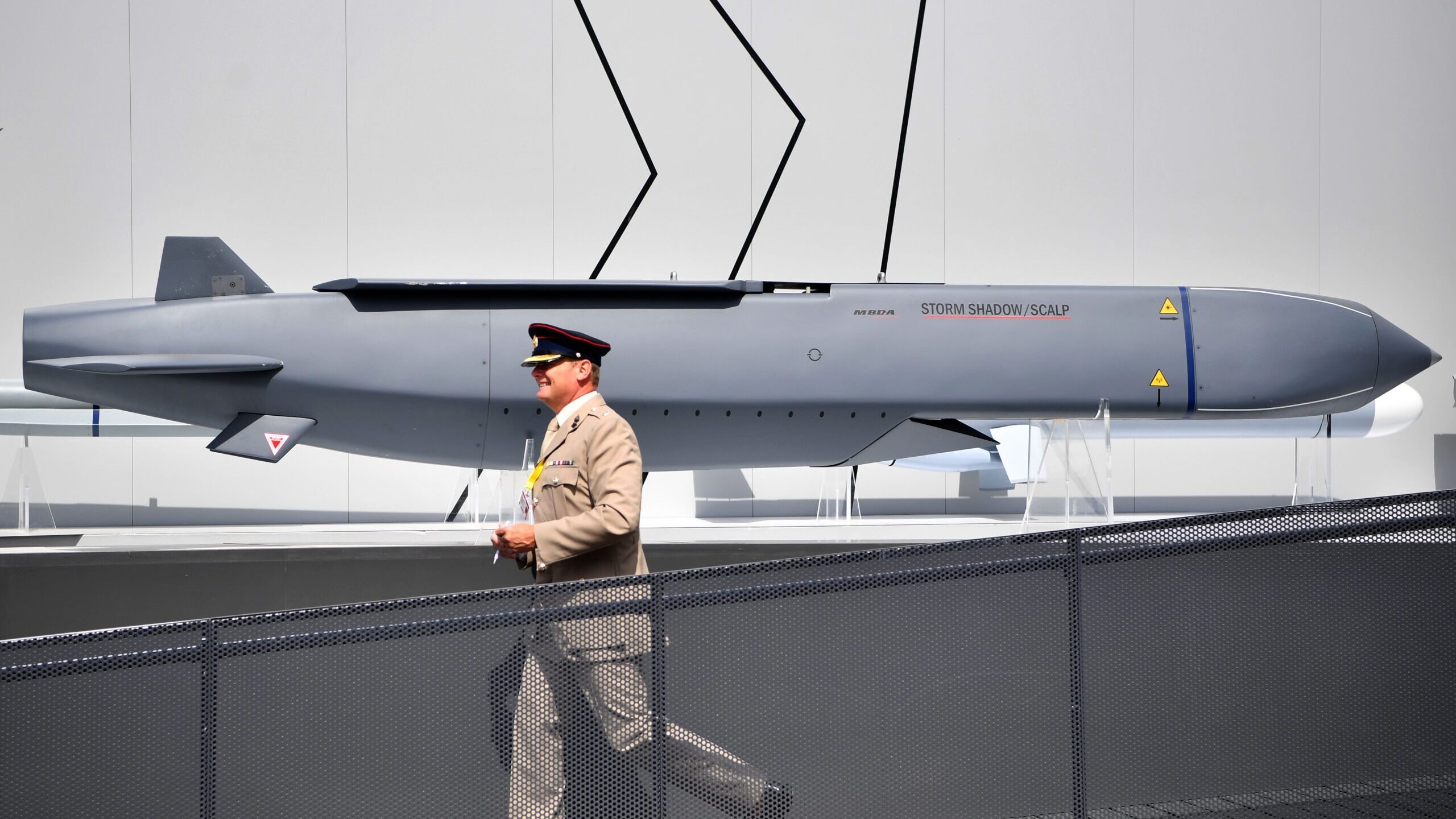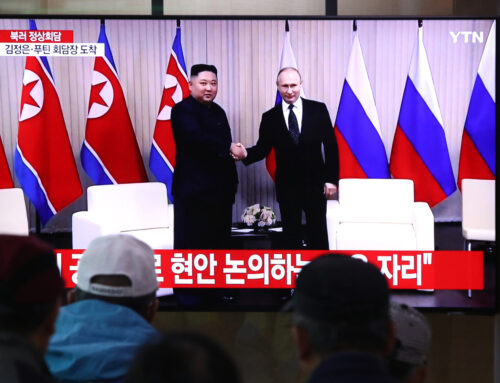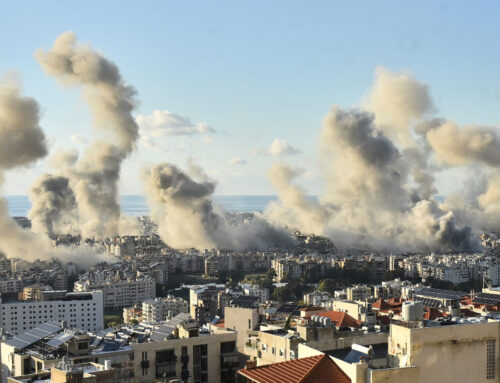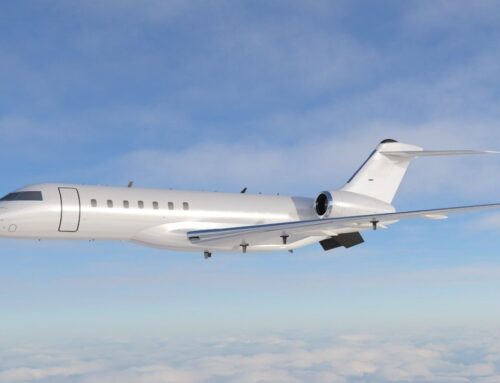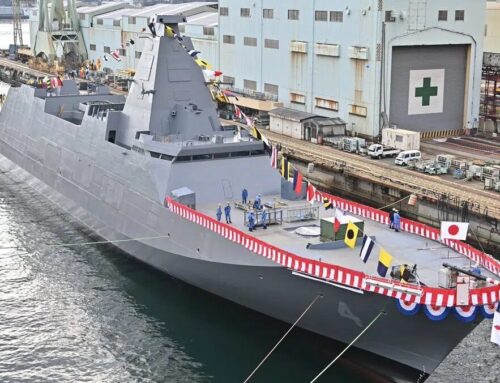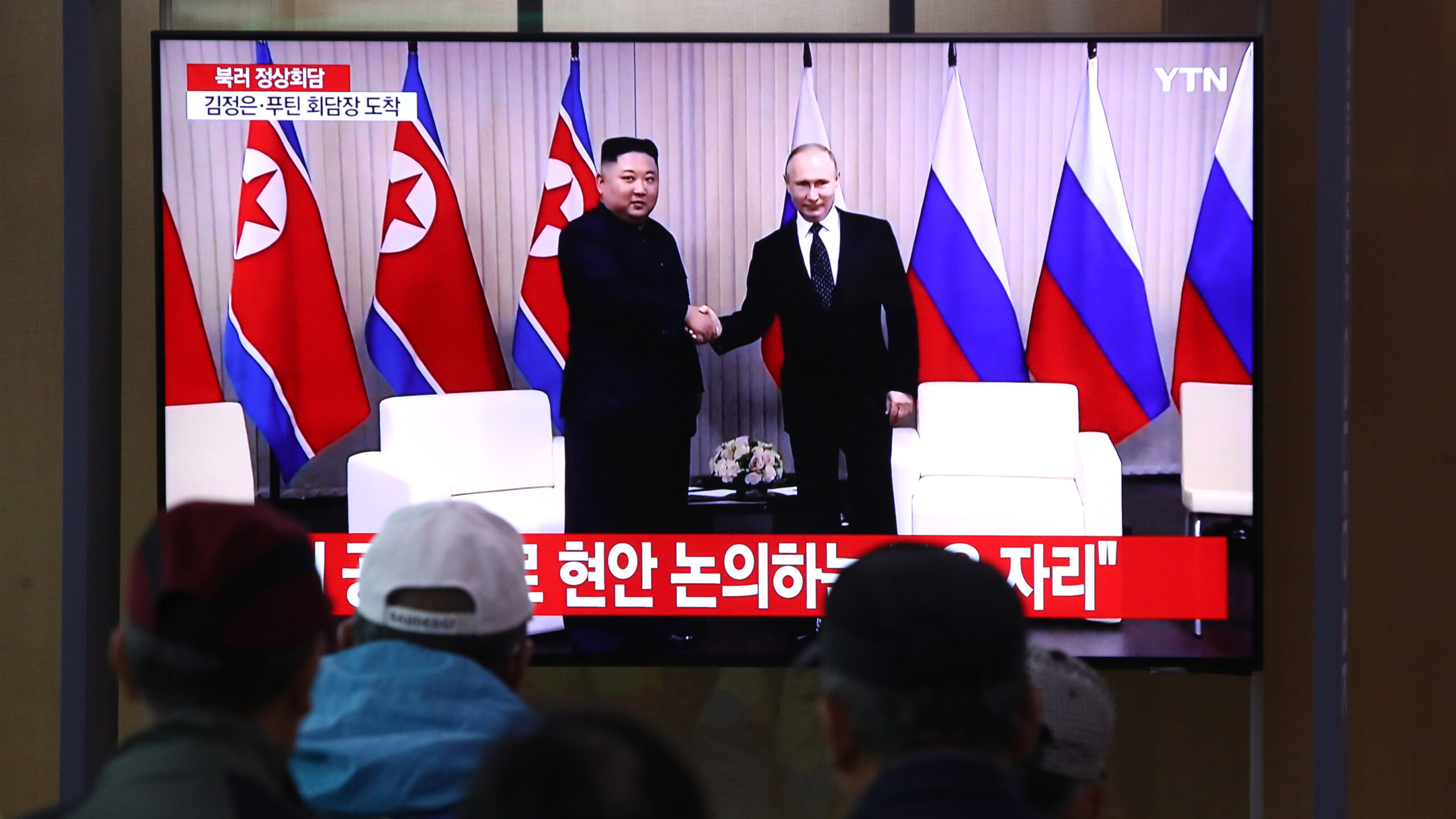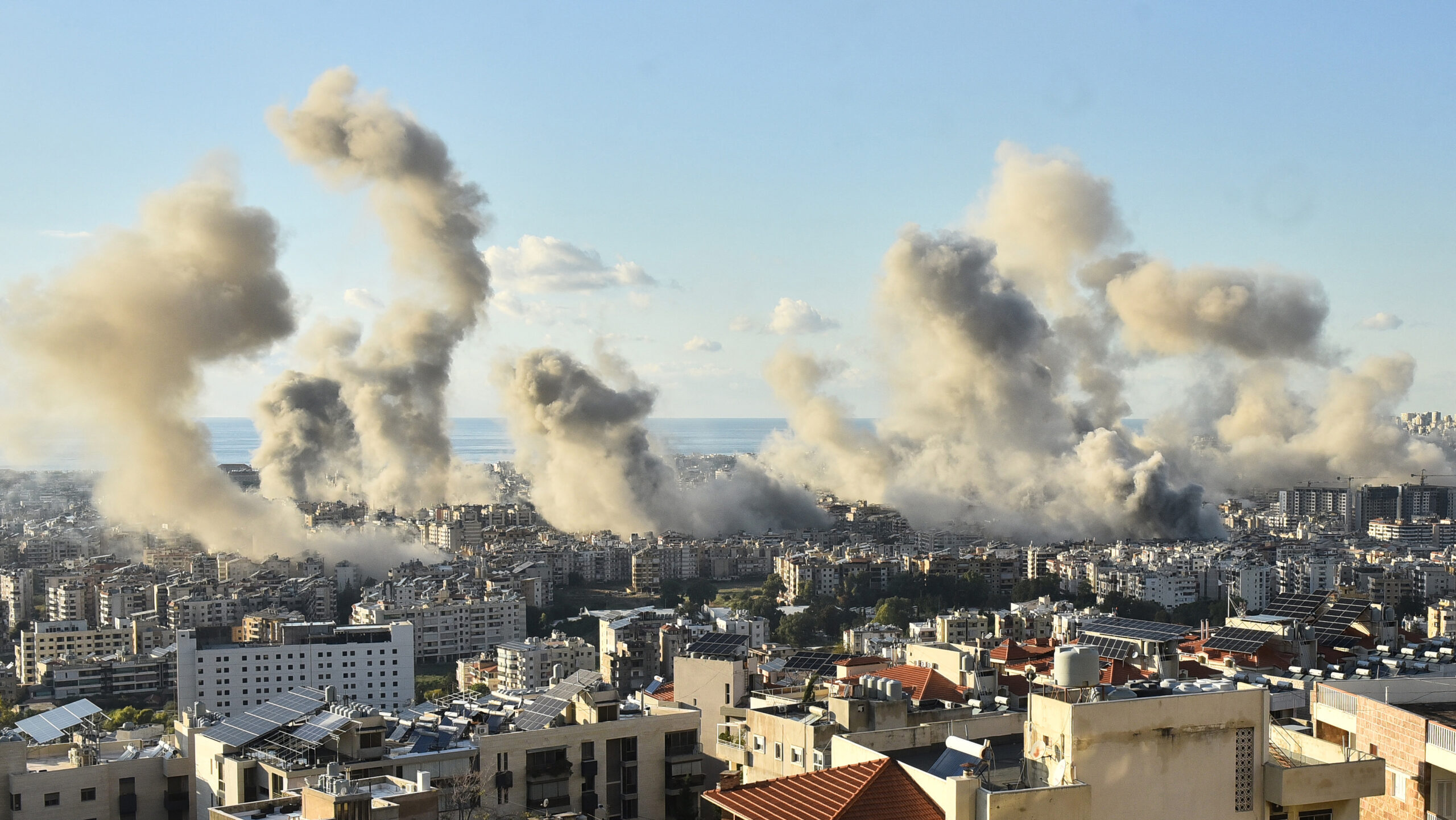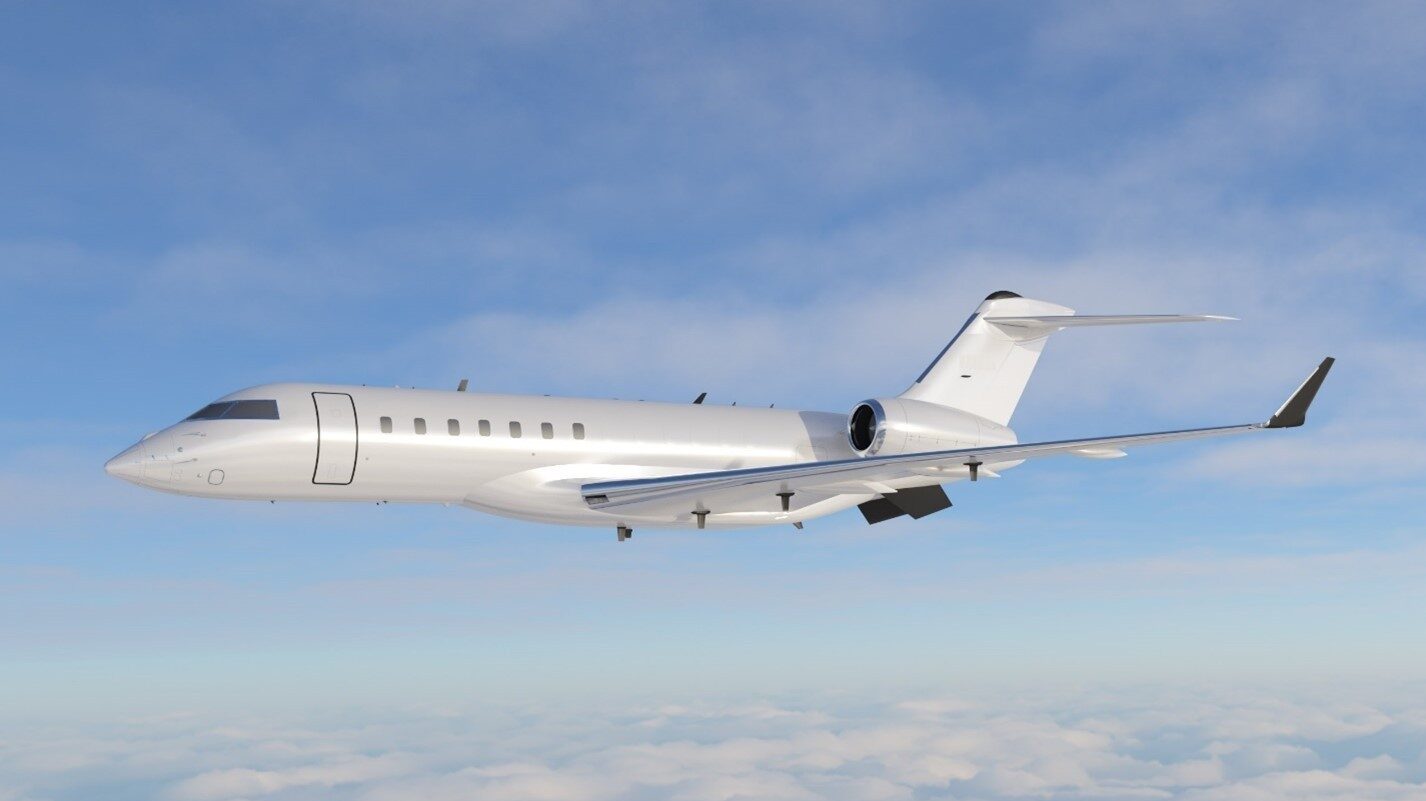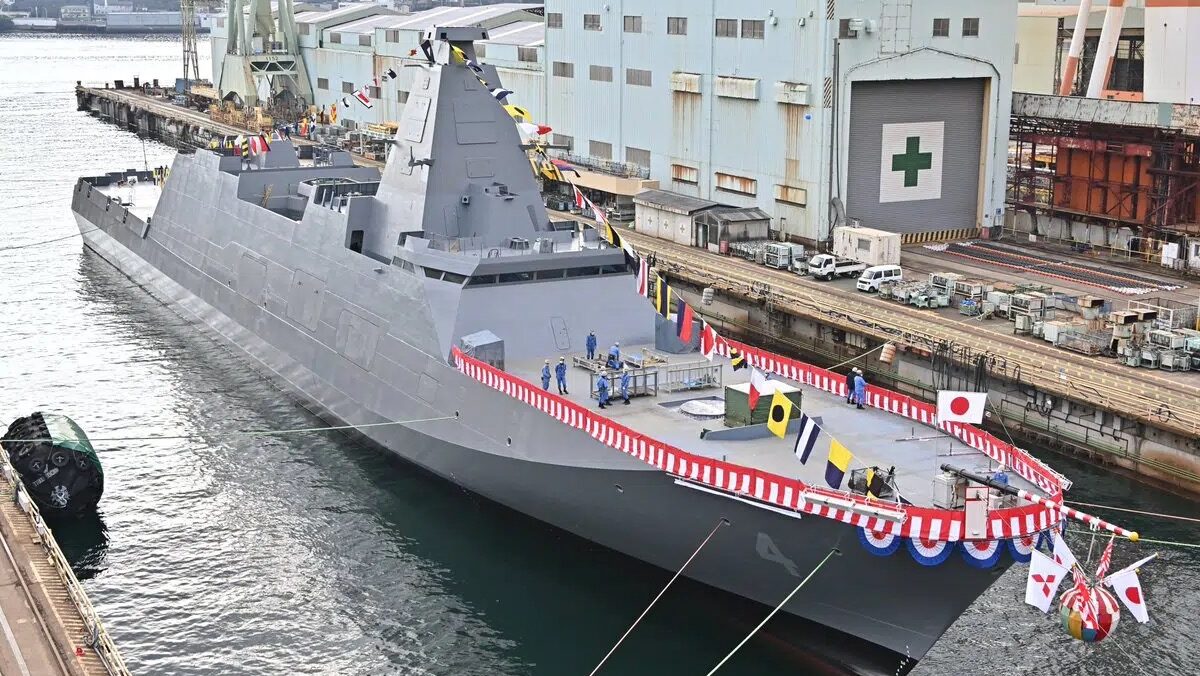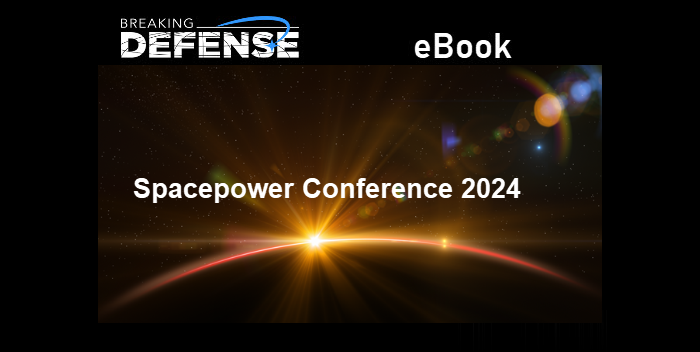A member of the military walks past a MBDA Storm Shadow/Scalp missile at the Farnborough Airshow, UK. (AFP via Getty Images)
BELFAST — Two weeks into Ukraine’s incursion of Russia’s Kursk region, an ambitious tactical gamble involving an estimated deployment of 10,000 troops, the strategic benefit of Kyiv’s newly-claimed 480 square miles of Russian territory remains uncertain.
But, the move could have a major potential impact on the war over messaging to NATO nations who have, to this point, restrained Ukraine from using Western-made weapons for strikes into Russia proper, outside of over the border retaliatory salvos, over fears of escalation.
The thinking among NATO allies has been that if Ukraine is able to use weapons provided by Washington, London, Berlin or other capitals to attack Russian territory — excluding Crimea, which the governments have been clear they view as Ukrainian territory and hence fair game — that Moscow would view it as an act of war by NATO, and retaliate, either by invading NATO territory or launching some form of nuclear attack.
But if Ukraine can actively take and hold Russian land using Western-provided equipment, without Russia escalating to a conflict with NATO, then the restrictions on use of long-range strikes looks basically foolish.
“The argument that they [Ukraine] were effectively making is, ‘look the front line is the same as the front line in eastern Ukraine, the same in the north and it’s the same in the south,’” said Matthew Savill, director of military sciences at the Royal United Services Institute, a British defense think tank. “The fact that the front line has moved into Russia now is kind of a product of war…. that has actually allowed them to kind of crack open that discussion about [deep strikes] on Russian territory.”
While neither weapon would be “war winning” by itself, Savill stated that MBDA’s Storm Shadow long range air launched cruise missile and the cluster variant of the US Army Tactical Missile System (ATACMS) would be ideal for striking hardened targets and aircraft at Russian air bases.
The previous and sitting UK governments and the Biden administration have so far refused to approve Storm Shadow and ATACMS strikes on Russian territory, though both weapons have been used for attacks in occupied Crimea. (The US DoD had not responded to a request for comment at the time of publication.)
Ukraine President Volodymyr Zelenskyy publicly criticized the UK’s approach on X, formerly Twitter, on Saturday, but hinted that talks could lead to a breakthrough.
“Throughout this war, we’ve seen the UK demonstrate true leadership—in arms, politics, and support for Ukrainian society,” he said. “This has saved thousands of lives, reflecting the strength of the UK. Unfortunately, the situation has slowed down recently. We will discuss how to fix this because long-range capabilities are vital for us.”
A day before Zelensky’s remarks, the UK’s Times newspaper reported that the US is blocking Ukraine from firing the UK missiles, amid London having sent an approval request to Washington “more than a month ago.”
Writing in the British i newspaper, Hamish de Bretton-Gordon, former commander of the British Royal Tank Regiment, said the decision by the UK to prohibit Storm Shadow strikes in Russia was “bewildering.” He argued that, “anything which hastens the Russians to the negotiating table must be grasped and exploited.” Acknowledging that UK lawmakers, like other “allied leaders” are “no doubt” concerned about possible escalation, de Bretton-Gordon dismissed such thinking on grounds that “years” of Russian nuclear threats have not been acted on.
“Every Russian red line has evaporated with the arrival of every Western piece of equipment,” he added. “It will be the same with Storm Shadow.”
“There has been no change in the UK’s position,” said a UK government spokesperson in a statement to Breaking Defense today. “We have been providing military aid to support Ukraine’s clear right of self-defence against Russia’s illegal attacks in accordance with international humanitarian law. We are clear that equipment provided by the UK is intended for the defence of Ukraine.”
Keir Giles, senior consulting fellow of the Russia and Eurasia Programme at Chatham House, a UK based international affairs think tank, similarly told Breaking Defense that the Kursk incursion should be considered, a “huge blow to Russia’s nuclear fantasies that they’ve stroked in places like Washington and Berlin…and will bolster the argument of those people that say all of the nuclear nonsense over the years has been sham and bluff.”
Ukraine’s Kursk offensive is a severe blow to Russian President Putin’s narrative.
Lifting restrictions on the use of capabilities vs the Russian military involved in aggression against Ukraine, in accordance with international law, would have several important effects:
1/3
— Josep Borrell Fontelles (@JosepBorrellF) August 21, 2024
Public support for loosening weapons restrictions has also been voiced by senior European leaders in recent days. Posting on social media on Wednesday, Josep Borrell, the European Union’s (EU) foreign policy chief, said, “lifting restrictions on the use of capabilities vs the Russian military involved in aggression against Ukraine, in accordance with international law,” would “strengthen Ukrainian self defence by ending Russia’s sanctuary for its attacks and bombardments of Ukrainian cities and infrastructure.” Borrell also pointed out that any lift on restrictions would “advance” progress toward peace talks and reduce “destruction” in Ukraine.
According to Borrell, the issue will be raised next week when EU foreign and defence ministers, including Dmytro Kuleba, Ukraine minister of foreign affairs, hold talks over two days, in Brussels, Belgium.
In the case of the US, DoD policy has consistently prohibited ATCAMS from being used to strike Russian territory. While the Kursk incursion has again put pressure on Washington to change course, public statements from US officials show no signs of near-term change.
As pressure mounts on both the US and UK to yield, other international weapons supply partners to Ukraine have again stressed that Kyiv has the freedom to operate donated munitions as it so chooses.
“We [Sweden] have never put any restrictions on the weapons that we have delivered to Ukraine, and we do not intend to do it now,” said Tobias Billström, Swedish minister of foreign affairs, during an interview with Germany’s DW. He added that Swedish weapon systems had played a role in “driving back Russian naval forces” in the Black Sea and enabled Ukraine to continue grain deliveries, overthrowing Russia’s blockade.
What Next For Kursk
Speaking more broadly about the Kursk incursion — the first time Ukraine has taken and held Russian territory since Moscow’s February 2022 invasion began — analysts seem to agree that Ukraine has to have a next step in mind for the newly-claimed territory.
The superior size of the Russian army and placing Ukrainian resupply lines within range of Russian “airpower and artillery” makes it “unlikely that Ukraine will be able to sustain its position indefinitely,” said Jacob Parakilas, research leader in defence at RAND Europe.
Pre-incursion, the idea of Ukraine “carving out” Russian territory, would have seemed difficult, because of Russia’s “numbers advantage,” resupply “vulnerability” and other factors linked to expanding the front line, explained Savill.
He struck a slightly more optimistic tone though overall on whether Ukraine will hold on to Kursk long term, based around the fact that Kyiv, “appears to have brought air defenses with them and are now every adept at striking helicopters using FPV drones,” while its execution of large drone strikes in Belgorod and Voronezh regions also speaks to new found tactical successes.
Notably, Ukraine has also claimed hundreds of Russian forces as prisoners of war, potentially creating a new trade chip for either prisoner swaps or peace negotiations in the future.


